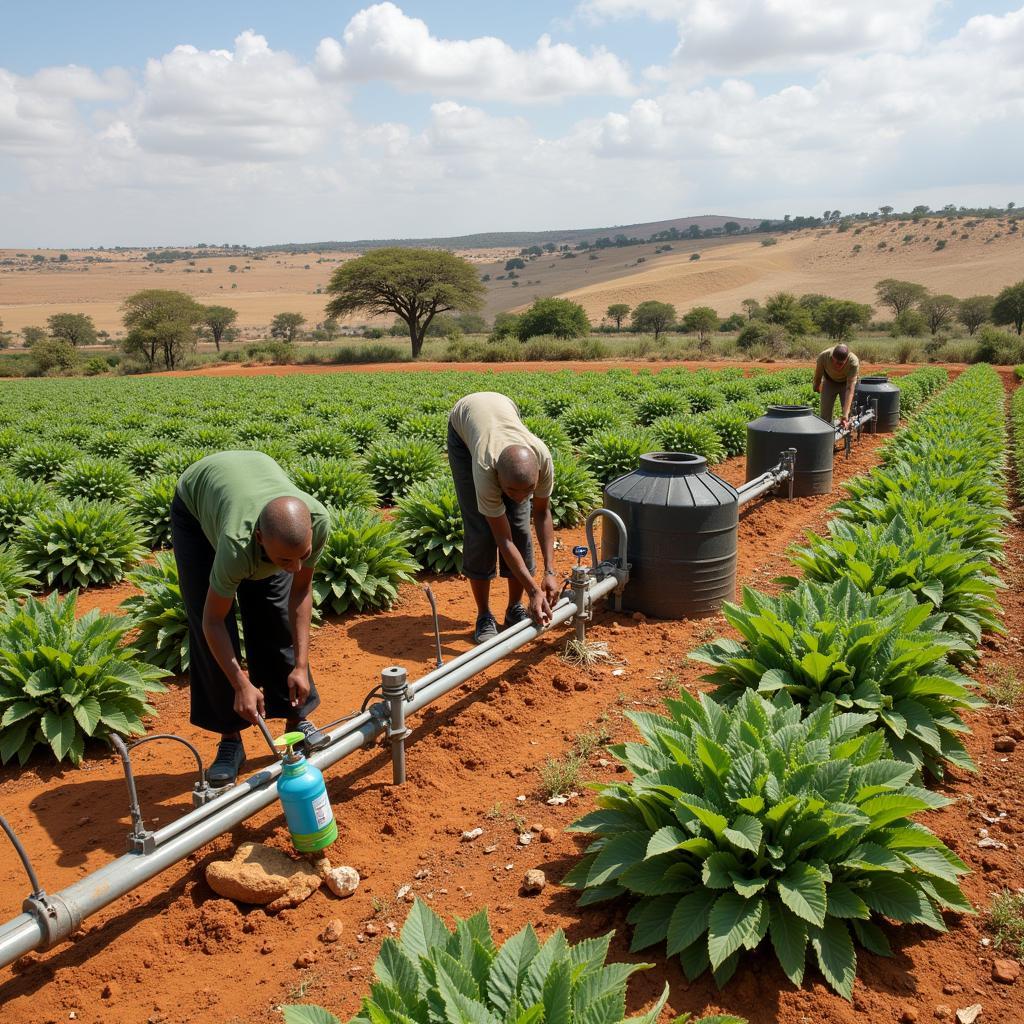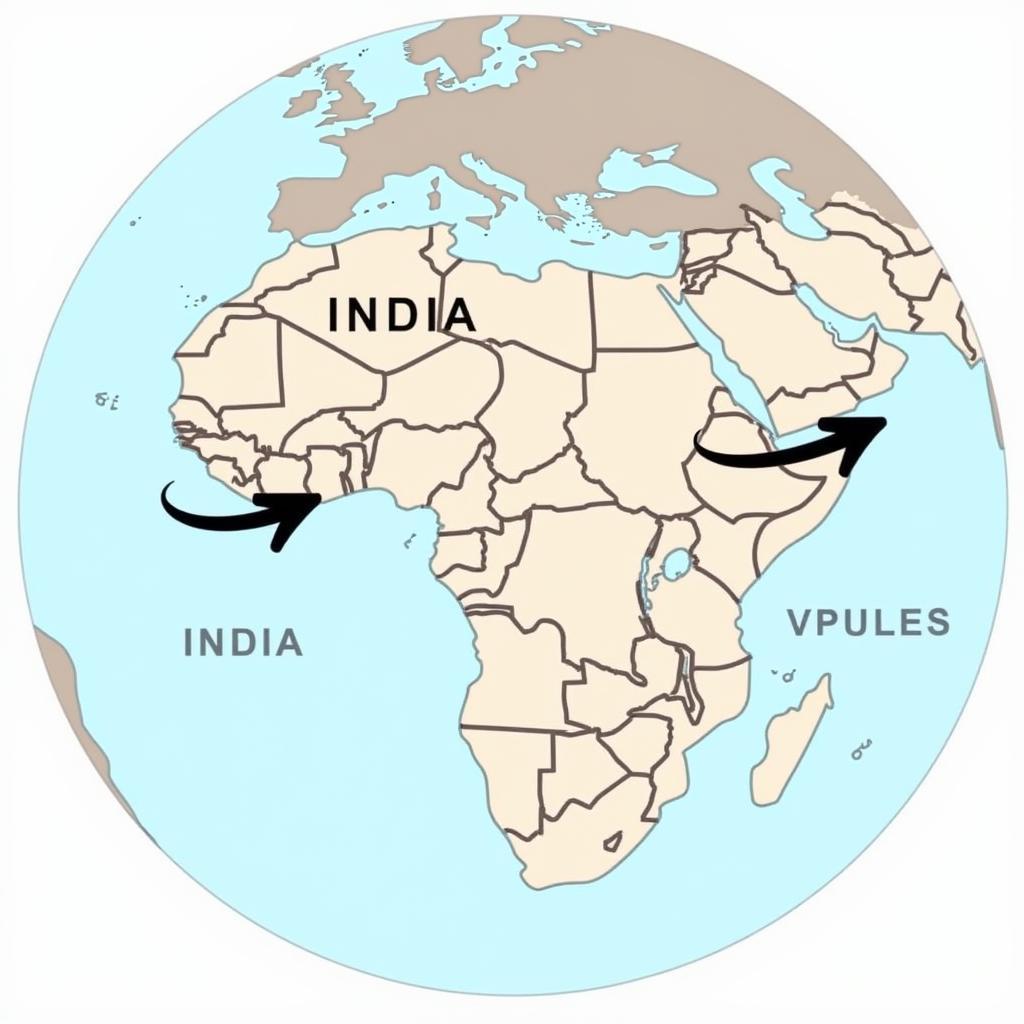Adaptation of African Agriculture Initiative: Cultivating a Resilient Future
The Adaptation Of African Agriculture Initiative is crucial for ensuring food security and economic stability across the continent. Climate change, population growth, and evolving market dynamics necessitate innovative approaches to farming practices. This article explores the critical aspects of this initiative and its potential to transform African agriculture.
Facing the growing threat of climate change, adapting African agricultural practices is no longer a choice but a necessity. Traditional methods struggle to keep pace with erratic weather patterns and shrinking resources. This requires a multi-pronged approach involving technology, policy, and community engagement. The African Development Bank and Asia Africa Growth Corridor represent a step in the right direction, fostering collaboration and knowledge sharing. african development bank and asia africa growth corridor.
Understanding the Need for Adaptation
Why is adapting African agriculture so vital? Because the continent’s predominantly rain-fed agriculture is highly susceptible to climate variability. Droughts, floods, and changing temperatures directly impact crop yields, threatening livelihoods and increasing food insecurity. Furthermore, population growth adds further strain on existing resources, demanding increased productivity from limited land.
Challenges and Opportunities
The challenges are immense, but so are the opportunities. By embracing sustainable agricultural practices, such as drought-resistant crops and efficient irrigation systems, Africa can build resilience against climate change. This shift requires investment in research, development, and capacity building. Moreover, it demands creating supportive policies that empower farmers and encourage the adoption of modern techniques.
 African Farmers Adapting to Climate Change
African Farmers Adapting to Climate Change
Key Strategies for Adaptation
Several strategies are crucial for the successful adaptation of African agriculture. These include:
- Diversification of Crops: Moving beyond reliance on a few staple crops and exploring climate-resilient varieties can enhance food security and reduce vulnerability to climate shocks.
- Improved Water Management: Efficient irrigation systems, rainwater harvesting, and drought-resistant crops are essential for optimizing water usage and ensuring consistent yields.
- Climate-Smart Agriculture: Integrating climate information into farming practices, such as planting schedules and crop selection, helps farmers make informed decisions and minimize risks.
- Soil Health Management: Sustainable soil management practices, including crop rotation and cover cropping, improve soil fertility and resilience to erosion.
- Empowering Women in Agriculture: Recognizing and supporting the vital role of women in agriculture is crucial for maximizing productivity and ensuring sustainable outcomes.
The Role of Technology
Technology plays a pivotal role in driving agricultural adaptation. Precision agriculture, mobile technology, and weather forecasting tools provide farmers with real-time information and resources to optimize their practices. Furthermore, biotechnology and genetic engineering offer opportunities to develop climate-resilient crop varieties. The African golden cat, like many other species, has adapted to its environment, showcasing the power of adaptation. african golden cat cats africa.
“Investing in technology and training is not an expense, but an investment in Africa’s future,” says Dr. Amina Osman, a leading agricultural economist specializing in sustainable farming in East Africa. “It is the key to unlocking the continent’s agricultural potential and building a food-secure future.”
The Future of African Agriculture
The adaptation of African agriculture is not merely a response to challenges, but an opportunity to transform the sector. By embracing innovation, fostering collaboration, and empowering farmers, Africa can build a resilient and prosperous agricultural future. The adaptation of African agriculture initiative is a testament to the continent’s determination to secure its food security and economic prosperity.
“We must move beyond subsistence farming and embrace a market-oriented approach,” adds Dr. Kwame Nkrumah, an agricultural researcher at the University of Ghana. “This requires supporting farmers with access to markets, finance, and infrastructure.” The African development bank has played a crucial role in supporting such initiatives. african developmenet bank gktoday.
Conclusion
The adaptation of African agriculture initiative is vital for the continent’s future. By embracing sustainable practices, investing in technology, and empowering communities, Africa can build a resilient and productive agricultural sector that contributes to food security, economic growth, and sustainable development. The challenge is significant, but the potential rewards are immense.
FAQ
- What are the main challenges facing African agriculture? Climate change, limited access to resources, and population growth are key challenges.
- How can technology contribute to agricultural adaptation? Technology offers tools for precision agriculture, climate monitoring, and improved resource management.
- Why is empowering women in agriculture important? Women play a crucial role in food production and their empowerment enhances productivity and sustainability.
- What are some examples of climate-smart agriculture? Using drought-resistant crops, efficient irrigation, and integrating climate information into farming practices.
- What is the importance of the adaptation of African agriculture initiative? It is crucial for ensuring food security, economic stability, and sustainable development.
- What are some African animals that have adapted well to their environment? African giraffes are a great example. african girafcffes animals.
- What are some examples of large African birds? You can explore a list of african big birds name.
Further Exploration
- Explore the impact of climate change on African agriculture.
- Learn more about sustainable farming practices in Africa.
- Research the role of technology in transforming African agriculture.
Call to action: For support, please contact us at: Phone Number: +255768904061, Email: kaka.mag@gmail.com, or visit our office at: Mbarali DC Mawindi, Kangaga, Tanzania. We have a 24/7 customer support team.


